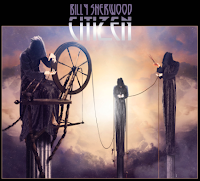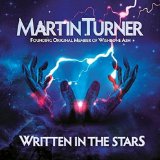'Tusk' gets deluxe reissue treatment, new video platform celebrates Fleetwood Mac
By Peter Lindblad
 |
| Fleetwood Mac - Tusk |
Fair or not, there is a tendency to think of 1979's
Tusk as "Fleetwood Mac's folly," the messy result of insane hubris, too much cocaine and frayed nerves, not to mention a whole lot of inner turmoil.
Trying to follow up
Rumours, one of the biggest-selling records of all-time, can make an already dysfunctional band do crazy things. That includes blowing $1 million on making a record. They even convinced the University of Southern California marching band to play on the euphoric, wildly original, poly-rhythmic free-for-all that is the title track.
In desperation, they pulled out every trick they could think of, and their experimental approach – borrowing elements from emerging genres such as punk and new wave – seems entirely logical in hindsight. After all, how do you top
Rumours? And, going one step further, how do you even attempt it with a band that doesn't seem to want anything to do with each other? There was no blueprint to follow. There were no case studies to review, except maybe that of The Beatles, who went off the deep end a little with 1968's
The White Album, after engineering their masterpiece,
Sgt. Pepper's Lonely Hearts Club Band. So forgive Fleetwood Mac if they were feeling somewhat desperate.
Assailed by critics upon its release as incoherent, self-indulgent and unfocused,
Tusk took its lumps, but over time, those initial assessments gave way to more glowing commentary. Nikki Hirsch is the senior vice president for
ZUUS Media, who is releasing an exclusive music video collection of Fleetwood Mac's most popular hits. ZUUS launched its
Fleetwood Mac channel Dec. 3, providing a platform for viewing all of Fleetwood Mac's videos, as well as those of Stevie Nicks. The timing coincides with the release of reissued, deluxe versions of
Tusk released Dec. 4 by Warner Bros. Records with a treasure trove of bonus material.
"Fleetwood Mac's Tusk is a legendary rock record – a double-LP with an experimental flavor and distinct, disparate songwriting, which (Fleetwood Mac bassist) John McVie used to say sounded like three separate solo artists," said Hirsch. "Despite these nuances, when it was first released in '79, the album was surprisingly met with harsh criticism for underselling in comparison to the band's previous album,
Rumours. Perhaps it's because of this diss that the album is considered highly underrated by critics and fans alike. When Warner announced the deluxe re-release of
Tusk, replete with previously unreleased material, we jumped at the opportunity to create a special artist collection channel to celebrate the band and album."
Listened to with fresh ears,
Tusk doesn't seem all that weird today, although the bounding energy and oddball, manic exuberance of "The Ledge," "What Makes You Think You're The One" and "That's Enough for Me" – where a wired-to-the-gills Lindsey Buckingham takes center stage – can be jarring. It's as if these songs themselves were doing lines of coke in the studio, especially when juxtaposed against the stream of mellow, folky pop gold flowing from Christine McVie's "Honey Hi," "Never Forget" and "Brown Eyes," as well as the spectral beauty of Nicks' "Sisters of the Moon" and the breathtakingly beautiful "Sara."
Despite its excesses and strange hyperactivity,
Tusk's up-tempo numbers have a bright, buoyant charm and surprising immediacy, while its well-crafted, soft-rock gems glow luminously, and while it's not an album that has a easy, logical sequence, it holds together pretty well – even if there wasn't much esprit de corps among the troops. Since then, hatchets have been buried, and this version of Fleetwood Mac, the one that couldn't stand to be around each other as
Tusk was being birthed, is peacefully coexisting, even flourishing on its most recent "On With The Show" world tour. And those who want the full Fleetwood Mac experience will find a lot to like about ZUUS' new venture.
"ZUUS' strategy with our artist collection channel platform is to provide an expertly curated viewing experience for fans, where they can enjoy continuous play-out of an individual artist's official music videos, live performances and additional content in one place," said Hirsch. "In our Fleetwood Mac channel, we feature the band's official music videos for classics like "Big Love" and "Little Lies," along with Stevie Nicks' live version of "Landslide," and additional collaborations and videos from Mick Fleetwood and Lindsey Buckingham. When Fleetwood Mac fans visit the channel on ZUUS, they will be able to re-experience the band in a unique, engaging way."
As for
Tusk itself, it was released in 1979 as a double-album and it climbed to No. 4 on the U.S. album charts on the strength of hits like "Sara," "Think About Me," and the title track. The new reissues are available as a Deluxe Edition (5-CD/2-LP/1-DVD-A, $119.98), an Expanded Edition (3-CD, $24.98), and a single disc of the newly remastered original album ($11.98). Digital versions will also be available.
The Tusk (Deluxe Edition) is packed with five CDs, including the remastered original album, an alternate version of the complete album made up of session outtakes, most of which have never been released, as well as an additional selection of singles, demos and remixes, including an outtake of "Think About Me," an early version of "That's Enough For Me" called "Out On The Road," plus several incarnations of "I Know I'm Not Wrong."
Want Tusk-related live stuff? This lavish release also includes two discs loaded with 22 unreleased performances from the band's 1979 "Tusk" tour with selections from concerts in London, Tucson, and St. Louis. It includes live versions of album tracks like "Sara, "Over And Over" and "Save Me A Place," as well as favorites like "Landslide," "You Make Loving Fun," "Rhiannon," "Don't Stop" and "Go Your Own Way." The collection also boasts a 5.1 surround mix of Tusk on DVD-Audio and vinyl of the original album on 2-LPs, and it's housed in an elegant box similar to the Rumours Deluxe Edition, with extended liner notes boasting new interviews with all the band members in a well-appointed booklet. This has to be one of the most impressive reissue treatments of the year.
TUSK: DELUXE EDITION (5-CD/2-LP/1-DVD)
Track Listing
Disc One: Original Album Remastered
1. "Over & Over"
2. "The Ledge"
3. "Think About Me"
4. "Save Me A Place"
5. "Sara"
6. "What Makes You Think You're The One"
7. "Storms"
8. "That's All For Everyone"
9. "Not That Funny"
10. "Sisters Of The Moon"
11. "Angel"
12. "That's Enough For Me"
13. "Brown Eyes"
14. "Never Make Me Cry"
15. "I Know I'm Not Wrong"
16. "Honey Hi"
17. "Beautiful Child"
18. "Walk A Thin Line"
19. "Tusk"
20. "Never Forget"
Disc Two: Singles, Outtakes, Sessions
1. "Think About Me" (Single Remix)
2. "That's All For Everyone" (Remix)
3. "Sisters Of The Moon" (Remix)
4. "Not That Funny" (Single Remix)
5. "Sara" (Single Edit)
6. "Walk A Thin Line" (Song #3 - 03/13/79)
7. "Honey Hi" (Alternate Version - 10/18/78)
8. "Storms" (Alternate Version - 11/30/78)
9. "Save Me A Place" * (2nd Version -10/10/78)
10. "Never Make Me Cry" (Version - 04/17/79)
11. "Out On The Road" (aka "That's Enough For Me" - Demo - 12/19/78) *
12. "I Know I'm Not Wrong" - Lindsey's Song #1 (Demo)
13. "I Know I'm Not Wrong" * (10/10/78 Version)
14. "I Know I'm Not Wrong" * (11/3/78 Version)
15. "I Know I'm Not Wrong" * (4/25/79 Version)
16. "I Know I'm Not Wrong" * (8/13/79 Version)
17. "I Know I'm Not Wrong" * (1/23/79 Version)
18. "Tusk" (Demo - 01/15/79) *
19. "Tusk" "Stage Riff" (Demo - 01/30/79)*
20. "Tusk" (Outtake Track - 02/01/79)*
21. "Tusk" (Outtake Mix - 01/23/79) *
22. "Tusk" (USC Version - 06/04/79) *
Disc Three: The Alternate Tusk
1. "Over & Over" (04/02/79) *
2. "The Ledge" (03/13/79)
3. "Think About Me" (02/18/79) *
4. "Save Me A Place" (10/18/78) *
5. "Sara" (03/10/79)
6. "What Makes You Think You're The One" (02/24/79) *
7. "Storms" (06/02/79) *
8. "That's All For Everyone" (10/20/78) *
9. "Not That Funny" (05/19/79) *
10. "Sisters Of The Moon" (11/12/78) 11. "Angel" (04/02/79) *
12. "That's Enough For Me" (09/29/78) *
13. "Brown Eyes" (with Lindsey & Peter Green, 09/20/78) *
14. "Never Make Me Cry" (02/08/79) *
15. "I Know I'm Not Wrong" (11/02/78) *
16. "Honey Hi" (10/11/78) *
17. "Beautiful Child" (10/09/78) *
18. "Walk A Thin Line" (04/06/79) *
19. "Tusk" (07/19/79) *
20. "Never Forget" (06/29/78) *
Disc Four: Tusk Tour Live I
1. Intro (Wembley, 06/26/80)
2. "Say You Love Me"(Wembley, 06/26/80)
3. "The Chain" (Wembley, 06/20/80)
4. "Don't Stop" (Wembley, 06/27/80)
5. "Dreams" (Wembley, 06/20/80)
6. "Oh Well" (Wembley, 06/20/80)
7. "Rhiannon" (Tuscon, 08/28/80)
8. "Over And Over" (St. Louis, 11/05/79)
9. "That's Enough For Me" (Wembley, 06/21/80)
10. "Sara" (Tuscon, 08/28/80)
11. "Not That Funny" (St. Louis, 11/05/79)
12. "Tusk" (St. Louis, 11/05/79)
Disc Five: Tusk Tour Live II
1. "Save Me A Place" (St. Louis, 11/05/79)
2. "Landslide" (Omaha, 08/21/80)
3. "What Makes You Think You're The One" (St. Louis, 11/05/79)
4. "Angel" (St. Louis, 11/05/79)
5. "You Make Loving Fun" (Wembley, 06/20/80)
6. "I'm So Afraid" (St. Louis, 11/05/79)
7. "World Turning" (Wembley, 06/22/80)
8. "Go Your Own Way" (Wembley, 06/22/80)
9. "Sisters Of The Moon" (Wembley, 06/22/80)
10. "Songbird" (Wembley, 06/27/80)
All live tracks previously unreleased
TUSK: DELUXE EDITION (3-CD)
Track Listing
Disc One: Original Album Remastered
1. "Over & Over"
2. "The Ledge"
3. "Think About Me"
4. "Save Me A Place"
5. "Sara"
6. "What Makes You Think You're The One"
7. "Storms"
8. "That's All For Everyone"
9. "Not That Funny"
10. "Sisters Of The Moon"
11. "Angel"
12. "That's Enough For Me"
13. "Brown Eyes"
14. "Never Make Me Cry"
15. "I Know I'm Not Wrong"
16. "Honey Hi"
17. "Beautiful Child"
18. "Walk A Thin Line"
19. "Tusk"
20. "Never Forget"
Disc Two: Singles, Outtakes, Sessions
1. "Think About Me" (Single Remix)
2. "That's All For Everyone" (Remix)
3. "Sisters Of The Moon" (Remix)
4. "Not That Funny" (Single Remix)
5. "Sara" (Single Edit)
6. "Walk A Thin Line" (Song #3 - 03/13/79)
7. "Honey Hi" (Alternate Version - 10/18/78)
8. "Storms" (Alternate Version - 11/30/78)
9. "Save Me A Place" * (2nd Version -10/10/78)
10. "Never Make Me Cry" (Version - 04/17/79)
11. "Out On The Road" (aka "That's Enough For Me" - Demo - 12/19/78) *
12. "I Know I'm Not Wrong" - Lindsey's Song #1 (Demo)
13. "I Know I'm Not Wrong" * (10/10/78 Version)
14. "I Know I'm Not Wrong" * (11/3/78 Version)
15. "I Know I'm Not Wrong" * (4/25/79 Version)
16. "I Know I'm Not Wrong" * (8/13/79 Version)
17. "I Know I'm Not Wrong" * (1/23/79 Version)
18. "Tusk" (Demo - 01/15/79) *
19. "Tusk" "Stage Riff" (Demo - 01/30/79)*
20. "Tusk" (Outtake Track - 02/01/79)*
21. "Tusk" (Outtake Mix - 01/23/79) *
22. "Tusk" (USC Version - 06/04/79) *
Disc Three: The Alternate Tusk
1. "Over & Over" (04/02/79) *
2. "The Ledge" (03/13/79)
3. "Think About Me" (02/18/79) *
4. "Save Me A Place" (10/18/78) *
5. "Sara" (03/10/79)
6. "What Makes You Think You're The One" (02/24/79) *
7. "Storms" (06/02/79) *
8. "That's All For Everyone" (10/20/78) *
9. "Not That Funny" (05/19/79) *
10. "Sisters Of The Moon" (11/12/78)
11. "Angel" (04/02/79) *
12. "That's Enough For Me" (09/29/78) *
13. "Brown Eyes" (with Lindsey & Peter Green, 09/20/78) *
14. "Never Make Me Cry" (02/08/79) *
15. "I Know I'm Not Wrong" (11/02/78) *
16. "Honey Hi" (10/11/78) *
17. "Beautiful Child" (10/09/78) *
18. "Walk A Thin Line" (04/06/79) *
19. "Tusk" (07/19/79) *
20. "Never Forget" (06/29/78) *
*Denotes previously unreleased
Ordering information links
Physical:
Digital:






















